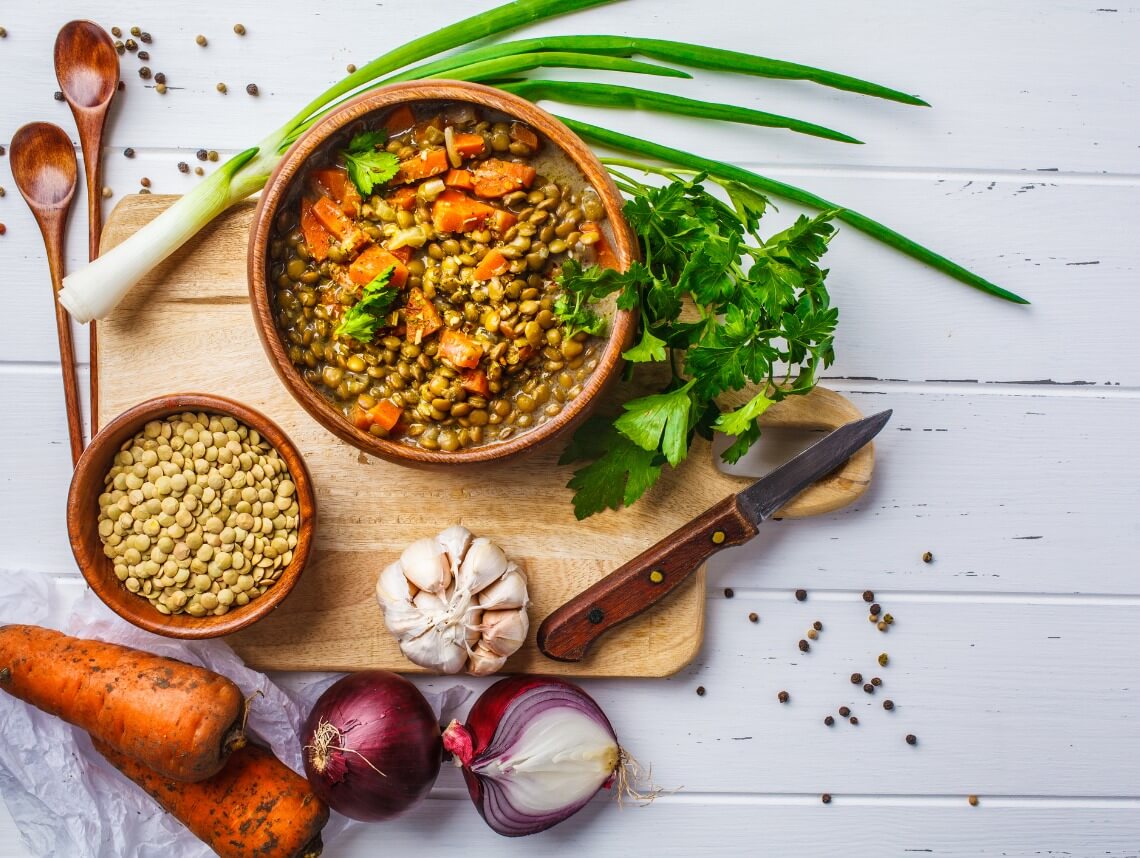Being diagnosed with a degenerative illness is disheartening. And because you’ll be living with it for the rest of your life, this new chapter comes with several lifestyle changes that are necessary to make the condition more bearable. Such is the case with osteoarthritis.
While there are several things you can do to ease the pain and discomfort (such as regular exercise, avoiding overuse of the joints, and maintaining a healthy weight), it’s crucial to understand the role that food plays in your overall quality of life; especially when you’ve been diagnosed with osteoarthritis.
What is Osteoarthritis?
Osteoarthritis is the most common form of arthritis, affecting millions of people worldwide. It occurs when the protective cartilage that cushions the ends of your bones wears down.
Although osteoarthritis can damage any joint, the disorder mainly affects joints in your hands, knees, hip, and spine.
The symptoms of Osteoarthritis can usually be managed, although the damage to joints can’t be reversed. Staying active, maintaining a healthy weight and some treatments might slow the progression of the disease and help improve pain and joint function.
Osteoarthritis Symptoms
Osteoarthritis symptoms often develop slowly and worsen over time. Signs and symptoms of Osteoarthritis include:
- Pain: Affected joints might hurt during or after movement.
- Stiffness: Joint stiffness might be most noticeable upon awakening or after being inactive.
- Tenderness: Your joint might feel tender when you apply light pressure to or near it.
- Loss of Flexibility: You might not be able to move your joint through its full range of motion.
- Grating Sensation: You might feel a grating sensation when you use the joint, and you might hear a popping or cracking.
- Bone Spurs: These extra bits of bone, which feel like hard lumps, can form around the affected joint.
- Swelling: This might be caused by soft tissue inflammation around the joint.
How Does Diet Influence Osteoarthritis?
Osteoarthritis is an inflammatory condition. Inflammation is the body’s attempt to protect itself by releasing white blood cells into the affected tissue. As a result, the area becomes red and painful.
There are many foods that contribute to inflammation in the body. If you regularly eat these foods, symptoms will be aggravated and you’ll experience more pain and joint stiffness.
Best Foods to Eat
- Omega-3 fatty acids. Omega-3s work to decrease inflammation by suppressing the production of cytokines and enzymes that break down cartilage.
- Spices. Some spices have anti-inflammatory effects too. Among the most promising are ginger and Turmeric.
- Turmeric. Turmeric is a natural anti-inflammatory, and there are many ways to incorporate it into recipes and smoothies. You can also make golden milk for a tasty, warm beverage before bed.
- Fiber. Fiber is another natural way to reduce inflammation, which is good for patients with either osteoarthritis or rheumatoid arthritis. Examples of foods that are rich in fiber include fruits, vegetables, beans, legumes, nuts, and whole grains.
- Vitamins A, C, and K. The easiest way to consume all three of these vitamins is to eat dark leafy greens, such as spinach, kale, or arugula. To add more color to your plate, red peppers, citrus, winter squash, sweet potatoes, sprouts, and cauliflower are all sources of Vitamin C.
Foods to Avoid
- Fried foods. Everyone knows that fried foods are bad for us. Yet we eat them because they taste good. That said, it’s important to know that eating fried food causes a chemical reaction in the body as the immune system thinks it needs to fight off infection, hence inflammation goes haywire.
- Saturated fats. Saturated fats also cause inflammation, and according to the Arthritis Foundation, people with arthritis have a higher risk of heart disease. So there are two good reasons to limit their intake. They include meat, cheese, and butter. You can still eat them, but be sure not to consume more than 20 grams per day.
- Added sugar. Processed foods have colossal amounts of added sugar: candy bars, cakes, cupcakes, muffins, cookies, breakfast bars, pastries, ice cream, pies… All these foods trigger the body’s immune system into defense mode, causing osteoarthritis flare ups that may leave your joints feeling weak and non-functional.
- Sodium. Salt causes cells to swell, causing the body to retain water and become bloated. This leads to inflammation. There are many ways to add flavor to your food without going overboard with salt. Swap this mineral for black pepper, garlic powder, dill, or lemon zest.
- Dairy. Before you get too sad about this, be aware that there are many non-dairy milk alternatives that not only prevent inflammation, they do not contain high amounts of fat that you find in dairy milk. These include soy, almond, coconut, cashew, hemp, flax, and rice milk. They all have different flavors and consistency, so there’s bound to be one that you like.
- Alcohol. Here are two reasons to limit alcohol intake if you have osteoarthritis: (1) Drinking liquor, wine, or beer will cause pain flare ups, and (2) its consumption can interfere with medications, making them less effective.
Is it True the Mediterranean Diet is Good for People with Osteoarthritis?
Yes. The Mediterranean diet is rich in beta carotene and anti-inflammatory foods. It incorporates many of the items listed above, such as fruit and vegetables, sweet potatoes, whole grain bread and pasta, beans, lentils, hummus, and olive oil, in addition, it limits meats.
Contact Care Options for Kids for Home Health Care
It can be hard to balance time between work, home, and family. Homecare providers offer the support you or your loved one needs.
If you or an aging loved one are considering home health care services, contact the caring staff at Care Options for Kids. Call today (888) 592-5855.
Sources
https://www.heart.org/en/health-topics/high-blood-pressure/understanding-blood-pressure-readings
https://www.heart.org/en/healthy-living/fitness/walking
https://www.sciencedaily.com/releases/2017/06/170623100708.htm
https://www.ncbi.nlm.nih.gov/pmc/articles/PMC3372556/






